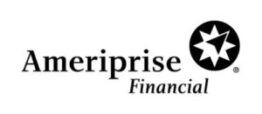
First American Securities, a broker-dealer headquartered in Orville, Ohio, was censured and fined $150,000.00 by Financial Industry Regulatory Authority (FINRA) after consenting to findings that the firm failed to supervise two private placements offerings. Letter of Acceptance, Waiver and Consent, No. 2015046056405 (Nov. 7, 2016).
According to the AWC, the firm had engaged into an agreement for a corporation, PCG, to offer securities via a private placement. Apparently, one of PCG’s two owners, CP, also owned First American Securities indirectly because CP owned fifty percent of the holding company for First American Securities.
Apparently, the private placement offering involving PCG securities was pitched by CP, and was meant for funds to be raised in order to lend entities money for purposes of buying, rehabilitating, and then selling Michigan properties that were distressed. Two share classes were reportedly offered: An A class share which provided a seven percent return per one year investment; and a B class share which carried a three-year commitment, and paid an eight percent bonus initially along with eight percent accrual on principal and bonus. First American Securities reportedly accumulated $3,250,000.00 from seventy-six investors, in which the firm received nine percent commissions.
The AWC stated that the firm did not conduct due diligence that was adequate concerning the PCG offering. Particularly, the firm failed to uncover that PCG’s chief executive officer had filed bankruptcy in 1998. Hough, who was First American Securities’ chief compliance officer at the time, apparently failed to detail PCG’s ability to profit and repay investors, and failed to consider several significant facts pertaining to the PCG’s principal and interest repayment probability pursuant to the investment’s terms.
Additionally, FINRA stated that the firm relied upon a third-party to prepare a consultant’s due diligence report, which basically consisted of the information found within PCG’s private placement memorandum. The report was apparently void of a substantive and independent analysis. The AWC also stated that the background of PCG’s chief executive officer had not been analyzed properly.
The AWC revealed that the firm failed to investigate PCG adequately, as well as reasonably examine the securities that PCG would be issuing. The firm reportedly did not properly analyze PCG’s drivers, strengths, weaknesses, or consider the market conditions and trends that PCG would be operating in. Moreover, The AWC revealed that the firm failed to properly examine the high-level managers working for PCG, as well as PCG’s financial projections. FINRA found that the firm’s conduct, which consisted of inadequate due diligence, was violative of FINRA Rules 2010 and NASD Rule 3010. FINRA also found that the firm lacked an adequate basis to conclude that the PCG Offering was suitable for customers. As such, FINRA found that the firm’s conduct was violative of FINRA Rules 2010 and 2111.
The firm was additionally cited by FINRA for making omissions and misrepresentations, as well as unwarranted, exaggerated, and misleading statements pertaining to the PCG Offering via a private placement memorandum and program summary provided to investors as part of the firm’s solicitation of the PCG offering.
Specifically, FINRA found that PCG’s private placement memorandum and program summary were partially comprised of claims about the investment’s safety, and forecasts concerning investment returns. Apparently, the program summary claimed that the PCG investment was backed by real estate; unencumbered in non-leveraged real estate that would enable investors to have certainty regarding investment returns; and that given PCG’s strategy, investors would be able to receive a positive return irrespective of the direction that the equity and debt markets took. Per FINRA, such statements were faulty – as the investment carried considerable risk of loss.
FINRA additionally found that that PCG’s private placement memorandum contained false statements concerning PCG’s purpose. Particularly, PCG’s private placement memorandum seemingly claimed that investors’ funds would be lent to as many as five third-party companies but that no borrower had been identified yet. Yet, PCG’s true intention, according to the AWC, was to lend funds to only one borrower who had already been identified.
The AWC further reported that the private placement memorandum and program summary omitted a going concern assessment which was contained in the Form 10-Q filed with the Securities and Exchange Commission. Additionally, the private placement memorandum and program summary reportedly failed to specify the chief executive officer’s prior bankruptcy filing. FINRA found that First American Securities’ conduct in this regard was violative of Securities Act Section 17(a)(2), as well as FINRA Rules 2010 and 2210(d)(1).
Per the AWC, First American Securities also misrepresented an offering in UR LLC, which was a company designed to fund healthcare and medical practices in order to finance the practices’ laboratories which conducted toxicology tests. UR LLC reportedly had three founders, one of which happened to be CP.
The AWC stated that UR LLC wished to raise $7,500,00.00 through issuing one and three year notes paying seven percent annually. Apparently, CP authorized First American Securities stockbroker Thomas Brenner to sell the UR offering to customers in return for an 11.5% commission. Brenner reportedly raised $1,630,000.00 through twenty of the firm’s customers, and raked in $189,000.00 about such.
FINRA found that First American Securities, by way of Brenner, made material misstatements and omissions concerning the UR LLC offerings. FINRA additionally found that First American Securities had made statements which were unbalanced, unfair, and exaggerated and misleading to the investors.
Particularly, FINRA found that UR LLC’s subscription agreements falsely stated the broker was due to receive a 10% commission; however, Brenner received 11.5%. Moreover, the executive summary distributed to investors reportedly made references to the UR LLC private placement memorandum which had not even existed at the time in which the statements had been made.
According to the AWC, the executive summary for UR LLC specified that investors would benefit from capital preservation and had a security interest in medical receivables that the practices generated. However, FINRA found that investors did not actually have any such security interest in medical receivables, and no personal guarantees had been made by physicians regarding the practice loans.
The AWC further stated that UR LLC’s executive summary failed to specify information pertaining to the risks of the UR LLC investment. FINRA found the UR LLC investment to be subject to considerable risk. Further, the documents provided to investors apparently did not indicate that UR LLC’s chief executive officer had been barred by FINRA in November 2011.
FINRA additionally noted that the UR LLC executive summary failed to inform investors that there was no legal certainly regarding the business structure of UR LLC; the business structure could be violative of certain state and federal laws. FINRA found that First American Securities’ conduct regarding the UR LLC private placement memorandum was violative of Securities Act Section 17(a)(2), as well as FINRA Rules 2010 and 2210(d)(1).
First American Securities, according to the AWC, failed to appropriately conduct due diligence on the private placement in accordance with its own policies. Per the AWC, First American Securities failed to independently examine the issuers, managerial authority involved, whether issuers could repay investors, and whether the issuer worked with a legitimate business plan. FINRA also noted that First American Securities never investigated the issuer’s claims concerning investments.
FINRA found that First American Securities’ conduct was violative of FINRA Rules 2010 and 3010. Additionally, FINRA found that First American Securities violated FINRA Rules 2010 and 2111 for lacking an adequate basis for recommending the UR LLC investment to customers. In addition to the fine and suspension, First American Securities was disgorged of $190,000.00 of commissions pertaining to the offerings.
This is not the first time that First American Securities has been censured and fined for supervisory failures by FINRA. In December of 2014, the firm was censured and fined $10,000.00 after consenting to findings that the firm did not create and implement supervisory protocols and systems pertaining to non-traditional exchange traded fund sales.
The information contained herein has been obtained from reliable sources however may not be accurate and is not guaranteed by us. Readers are encouraged to undertake their own independent investigation and evaluation of the relevant facts. All claims and allegations are subject to adjudication, decisions may be subject to appeal, and no inference is intended, nor should any inference be made from any information contained herein from any source.
This posting and the information on our website is for general information purposes only. This content should be not considered legal advice, and any responses, comments, e-mails, other communications do not form any attorney client relationship. Attorney Advertisement. See Important Disclaimer
Guiliano Law Group
Our practice is limited to the representation of investors. We accept representation on a contingent fee basis, meaning there is no cost to you unless we make a recovery for you. There is never any charge for a consultation or an evaluation of your claim. For more information, contact us at (877) SEC-ATTY.
For more information concerning common claims against stockbrokers and investment professionals, please visit us at securitiesarbitrations.com
To learn more about FINRA Securities Arbitration, and the legal process, please visit us at securitiesarbitrations.com








